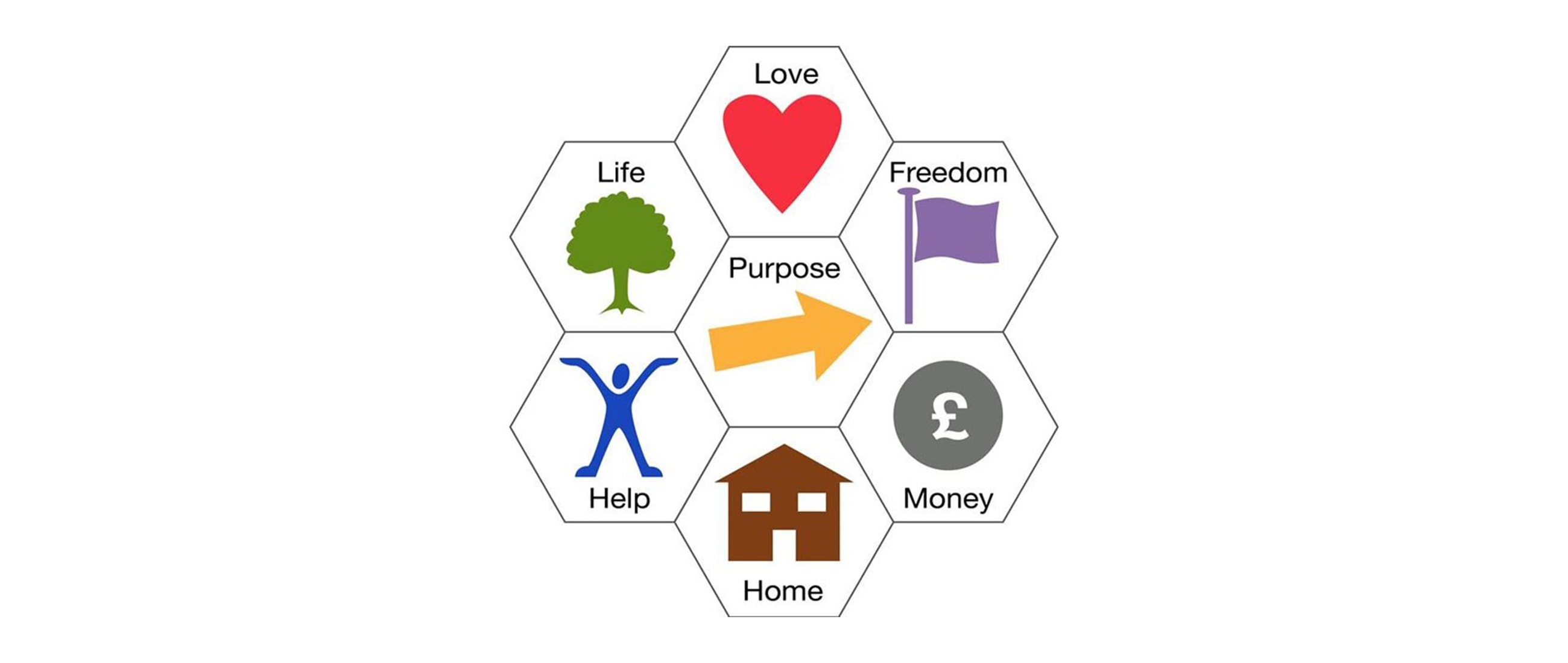Blog
Sex, love and citizenship

Love is one of the seven keys to citizenship, Dr Simon Duffy, Centre for Welfare Reform.
A few years ago I wrote a book called Keys to Citizenship which described what good support for people with learning difficulties looks like.
Like any son I gave a copy of the book to my Mum, hoping for a little praise. A few months later I met my Mum at Christmas and asked her what she thought of my book. She said, much to my surprise:
“Well it’s very good Simon, but there’s nothing about sex in it.”
On lots of levels that’s quite a difficult thing to hear from your Mum. But my Mum was not alone; my great friend Wendy Perez, a fantastic advocate for people with learning difficulties, also told me the same thing. She said it was a great book, but not accessible enough and that it should include more on sex. You can read my book here.
Now I think they were both right. But it took me a little while to accept that sex could be part of citizenship. Partly my resistance was because I am rather shy person who doesn’t like to talk openly and frankly about sex. But partly my resistance was philosophical.
I love the idea of citizenship and I wanted to show how everyone could be a citizen and that people with learning difficulties make great citizens. But I started with the idea that citizenship was a public - out in the open - kind of activity. Sex and love both seemed to me more private affairs - nothing to do with citizenship.
But I was wrong. Citizenship is not just a public business. In fact my own theory should have told me that. Having a sense of purpose, having money and home, these are all private matters. Citizenship is both public and private. Citizenship is about how we come out from the private into the public world; and its also about how we go back from the public into the private world.
We've expanded the Keys of Citizenship from six to seven
I also started to understand that there was lots of practical support that we could offer people with sex, love and friendship. Friends such as Kay Mills have set out in great detail many of the practical steps we can do to help people form friendships. Read more here.
The same is true of sex; there are people providing great accessible support for people about sex and it would be very wrong not to treat this as a basic support skill.
These challenges from my Mum and Wendy have done me a lot of good and my thinking and writing have changed. Wendy and I developed a more accessible version of keys to citizenship - expanding the Keys of Citizenship from six to seven:
- Purpose
- Freedom
- Money
- Home
- Help
- Life
- Love
We tried to show how love is both the beginning and the end. Love grows out of a life of citizenship. Love is also the foundation, giving us new life, support and inspiration. Without love we are nothing.
I have also started to develop new ideas. My own work exists at an unusual intersection. Most of my practical work and my real mission is about helping people with learning difficulties take their proper place as full citizens. But I am also by training a philosopher and my PhD was about the difference between right and wrong. I also run a think tank, the Centre for Welfare Reform, which tries to change people’s thinking about how society should work. I’m also a Christian and this is at the bedrock of my own beliefs.
In the past I tried to keep all my different ideas in different boxes, talking to some people in one way and then talking to others in a different way. Today I’m trying to relax and to mix things up a bit. My latest big essay is called Love and Welfare and I explore why using Christian and Jewish ideas about love and justice would help us improve the welfare state and society.
I must say, when I heard about the idea of Supported Loving I was so pleased. It’s a great idea and it is about time we all start getting braver talking about both sex and love.
Dr Simon Duffy
Centre for Welfare Reform
The views expressed in the Supported Loving blog are not necessarily those of Choice Support.





